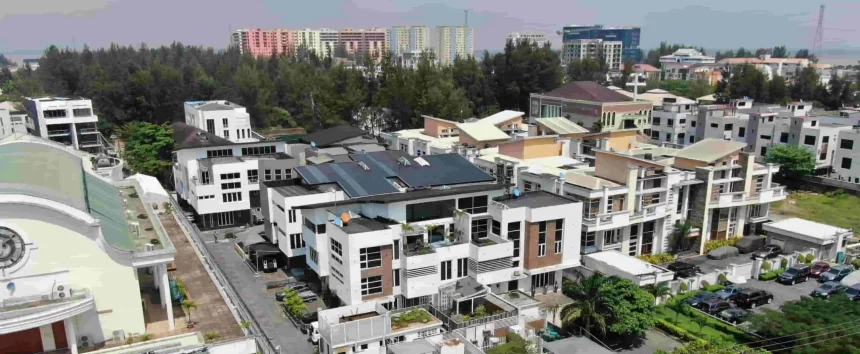Money Laundering in Real Estate Abuja Linked to Outdated Land Laws
Leading Nigerian regulatory and legal organizations have connected outdated land administration systems and lax regulatory oversight to the rise in money laundering in the real estate industry.
Ola Olukoyede, the chairman of the Economic and Financial Crimes Commission (EFCC), Afam Osigwe (SAN), the president of the Nigerian Bar Association (NBA), and Dr. Adebowale Adedokun, the director-general of the Bureau of Public Procurement (BPP), all emphasized this at a policy dialogue in Abuja.
According to them, the sector’s susceptibility to illicit financial activities is caused by a lack of modern legal frameworks, clumsy procedures, and a lack of transparency.
According to Olukoyede, a lot of real estate projects are financed by dubious financial inflows, making the sector a sanctuary for money laundering. “The current structure makes it easy to launder money because it allows developers to avoid scrutiny,” he said.
He also revealed that a lot of properties are abandoned in the middle, and that some of them are supported by public monies that have been siphoned, according to investigations.
“We have located a number of housing developments that are financed by dishonest public personnel. “Projects are abandoned once the stolen funds stop,” he added, adding that the EFCC has started the interim forfeiture procedures for about 15 of these estates.
In order to identify the real owners of real estate holdings, the head of the EFCC advocated for the implementation of digital instruments like a working Beneficial Ownership Register.
Additionally, he called for a departure from Nigeria’s cash-heavy economy, characterizing it as a breeding ground for corruption, and urged developers to thoroughly investigate their clientele.
NBA President Afam Osigwe also criticized the nation’s antiquated land documentation system, pointing out that it is antiquated and ineffective to require a Certificate of Occupancy (C of O) merely to confirm ownership.
Property details are available in other nations in a matter of minutes. It’s confusing and frustrating here,” he remarked.
Osigwe emphasized the necessity of systemic change and promoted the use of technology to increase property records’ accessibility and openness.
Adedokun of the BPP emphasized in his speech how procurement flaws frequently lead to the misappropriation of public monies in real estate projects.
He clarified that significant discrepancies between reported and actual project costs result in extra money that is ultimately laundered.
He cautioned, “There are no effective controls, so people use real estate to stash untraceable money.”
Adedokun disclosed that the Corporate Affairs Commission (CAC) and procurement authorities are working together to strengthen project oversight and stop contract misuse.
In order to address fraudulent real estate transactions, it is necessary to guarantee adherence to anti-money laundering regulations and shield purchasers from exploitation.
The event was graced by legal professionals, regulators, and industry stakeholders, which was organized by the law company The Law Corridor.
There was broad agreement that the real estate industry would continue to be a significant conduit for the laundering of illegal monies unless Nigeria modernizes its land and property administration systems.
news via inbox
Get the latest updates delivered straight to your inbox. Subscribe now!




